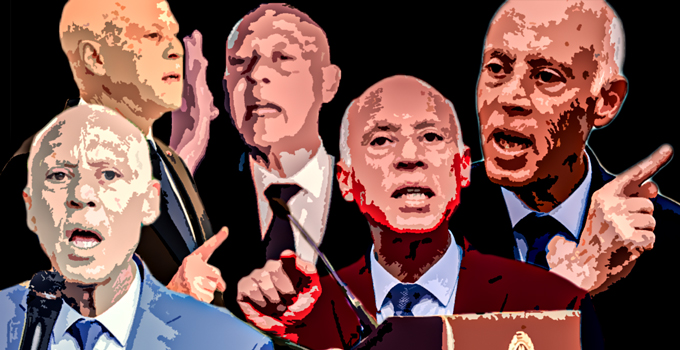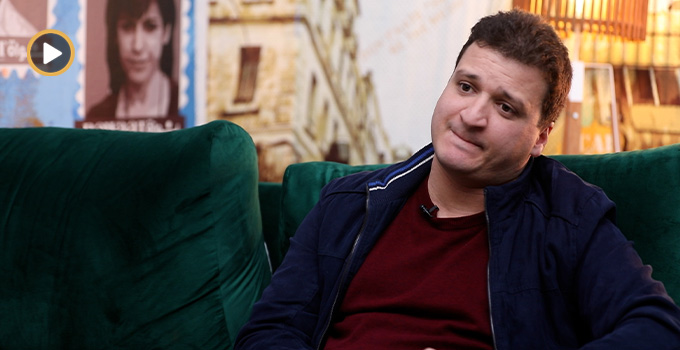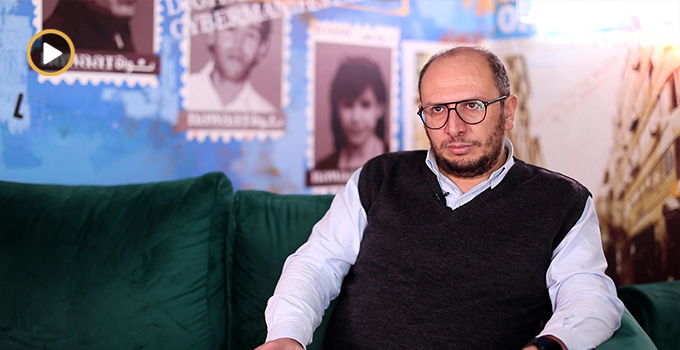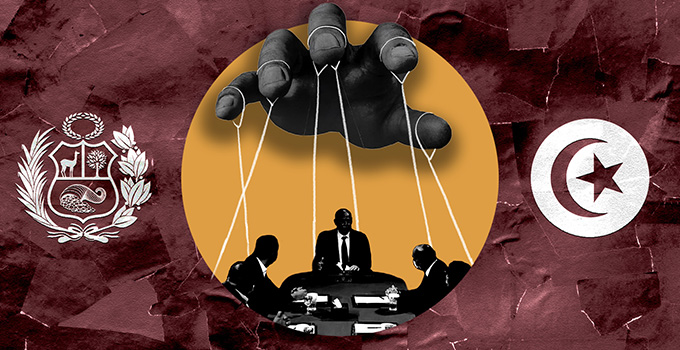“Sometimes I feel like I’m from another planet” remarked Kais Saied two years into his presidency. While it is certain that the seventh Tunisian head of state is from earth, he does occupy a special place in the history of Tunisian presidents. He differs from his predecessors both in his behavior and the reactions it elicits. The most recent example of this played out in the last episode of the ramadanesque soap opera inspired by the subject of Saied’s health.
REPEATED ABSENCES
This was not the first time that Carthage’s current occupant fell off the radar. However, his disappearance between the end of March and beginning of April was the longest of these episodes—eleven days—since he took office in October 2019.
Until recently, President Kais Saied had never explained his repeated absences. At first, no eyebrows were raised. The president’s office mentioned the issue only once, announcing on February 7, 2020 that “on the advice of his personal doctor, President Kais Saied will observe a 4-day rest period starting on Friday, February 7, 2020, due to acute inflammation of the throat.”
The buzz that has arisen around the president’s state of health can be seen as a consequence of the current political crisis, in particular the deepening power struggle between the head of state and opposition.
DOUBTS AROUND THE PRESIDENT’S MENTAL HEALTH
The silence that once stifled questions concerning Saied’s mental was broken as soon as he presented his candidacy before the Supreme Court. The first foray into the issue was not executed by political party or politician, but civil society, and more specifically the extremely controversial association Shams.
In June 2019, two months before the presidential elections, the association, which advocates for the decriminalization of homosexuality, characterized Kais Saied as “mentally ill.” The claim was prompted by the president’s assertion that “homosexuality, or rather its public expression, is encouraged by foreign parties who finance Tunisian homosexuals.”
In September 2019, after Saied’s qualification for round two of the presidential elections, the issue was raised again. This time by a psychiatrist, Sofiane Zribi, and a… doctor of management, Youcef Ennabli. The diagnoses they presented could not have been more divergent.
On September 24, Sofiane Zribi resolved to publish an article which countered claims that the presidential candidate Kais Saied had mental health issues. Initially, this eminent psychiatrist explained, he had chosen “not to speak out, not because I had nothing to say, but to avoid biased interpretations and misplaced references.” He finally decided to enter the arena in defense of his friend after seeing “figures from the medical field and civil society whose haphazard descriptions and allusions are based on nothing more but a few videos they have seen or fragments of speeches they have heard.”
Zribi, who confirms that Saied “is not in the least bit sick,” further remarks that the then presidential candidate “has always spoken in a low voice, in a manner that is respectful of others, polite and fair. If he has demonstrated professional deformation, this is largely due, no doubt, to being unaccustomed to speaking in front of cameras. He will quickly adapt.”
Perhaps sensing that Saied’s atypical qualities disturbed, even worried, many Tunisians, Dr. Zribi notes that the man he knows is “sociable, open and human.”
In closing, the psychiatrist urges “colleagues and friends: discuss his ideas, discuss his vision, agree or disagree with him, that is your right, but stop insinuating things that are neither fair nor true and that can, at best, go unnoticed and, at worst, cause needless harm without changing votes.” While his colleagues may have lent an ear, other Tunisians did not.
One week later, another doctor—this time in the field of management—stepped into the arena to challenge Zribi’s diagnosis of the presidential candidate. Dr Youcef Ennabli expressed in an article his “reservations about the psychological profile of Kais Saied as described by the psychiatrist.” Dr Ennabli wrote, “It seems to me that the description is rather biased. Other character traits should have been addressed. It also seems that the cross-referencing of his psychological profile and his political vision is flawed.”
Finally, Ennabli “would have preferred that the author indicate the approach or psychoanalytic method applied to decipher certain character traits of future president.”
POLITICAL EXPLOITATION
During the televised debate before the second round on October 11, 2019, Nabil Karoui, Saied’s rival for the presidency, attempted to capitalize on the controversy; the latter, Karoui suggested, might be incapable of assuming the functions of president. Avoiding the topic of mental health, Karoui hinted that the future president was sick with cancer. Saied replied—in French—“I am not ill, but rest assured, one day I will die.”
Statements about and references to the state of Kais Saied’s mental health became even more frequent and insistent in 2022 as the power struggle intensified between the president and the coalition headed by Ennahdha. But the buzz was not exclusively created by those who today form the National Salvation Front.
On December 15, 2020, Lotfi Mraihi, founder of the Republican Popular Union (UPR), told Tunisians that they had “elected a psychopath to the presidency.” When Mraihi, a doctor, reiterated this statement on January 25, 2021, Borhen Bsaies weighed in. Reacting to a speech by Saied during a National Security Council meeting, the radio host espoused Mraihi’s analysis.
On February 17, 2021, public law professor and Saied’s former colleague, Sghaïer Zakraoui, stated that the president was autistic. Later that year, in November, former President Moncef Marzouki elaborated on this same theme, followed one month later by Rafik Abdessalem, son-in-law of Ennahdha’s president Rached Ghannouchi and former foreign minister.
At the end of April 2022, an anonymous source released recordings in which the former director of the presidential cabinet, Nadia Akacha, allegedly adds grist to the mill of Saied’s enemies. Akacha, whose claim that she resigned from her post in January 2022 contrasts with the official version that she was dismissed, is heard validating conjectures around the president’s mental illness in detail.
Akacha feebly contested, writing on her Facebook page: “As if slander and libel are not enough, now we are confronted with voice editing. It will never end.” Ultimately, Akacha was deemed responsible nevertheless and sentenced in absentia on January 17, 2023 to serve 14 months.
Saied’s long absence from late March through early April 2023 fell well for his opponents. As tensions mounted, the president’s unexplained disappearance from office enabled his adversaries to drive the nail in deeper.
A refugee to London and thus reassured of the impossibility of prosecution, Rafik Abdessalem posted on his Facebook page on March 31, 2023 that Kais Saied was sick and being hospitalized at the military hospital.
In Tunis, the National Salvation Front (FNS) showed more caution. Although he said he learned that “the president has had a health problem since the first day of his absence on March 23, 2023,” he settled for urging the government to “share the reasons” and to “inform Tunisians if this absence is due to health reasons.”
SAIED FINALLY SPEAKS OUT
The government ignored the party leader’s requests. On April 2nd, even Health Minister Ali Mrabet refused to answer a questions regarding the president’s health. It was Saied himself who finally addressed the issue upon his reappearance the following day.
Indeed, on April 3, 2023, in a meeting with Head of Government Najla Bouden, Saied addressed only this topic during the 11-minute clip diffused on the presidency’s Facebook page. During this monologue, the president gave his own account of his longest absence since the beginning of his mandate, in efforts to counter what had been relayed by the media and opposition.
Welcoming Bouden, the president affirmed that “communications [between himself and Bouden] have continued” and that “coordination between all government authorities has been sustained, contrary to rumors.”
Saied then refuted claims of a power vacuum. Accusing his opponents of not being able to distinguish a temporary hindrance from a vacancy of power, he argued that “neither had taken place” since he had “not appeared for two or three days” only. His explanation: “I caught a cold and it became problematic.”
One crucial question: Why did the president choose to break the silence which until that moment had shrouded the subject of his health? Most likely to expel any doubts regarding his capacity to carry out his functions, and to put an end to the idea of a possible power vacuum.
It was Law Professor Amin Mahfoudh who initially sparked that idea, recalling what the August 2022 constitution prescribes for such a scenario. In a Facebook post on April 1, 2023, Mahfoudh—a former member of the advisory committee set up by the president to draft a new constitution—threw a jab at Saied without explicitly naming him. As Mahdoudh wrote in his post, “he who cares about the Tunisian State strives to ensure its longevity by taking it upon himself to plan ahead in the event of a vacancy of power” and that, in contrast, “the longevity of the State matters little to anyone who believes he personifies it.” In the latter case, Mahfoudh concludes, “the possibility of a vacancy of power is the last of his concerns.”
If he wants to refute his former colleague, Kais Saied will have to rush to create a constitutional court whose president, according to the constitution of August 2022, is the key figure. Since, in the event of a presidential vacancy, it is the constitutional court’s president who is responsible for taking over power and organizing an early presidential election to designate a successor.





iThere are no comments
Add yours